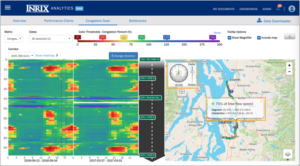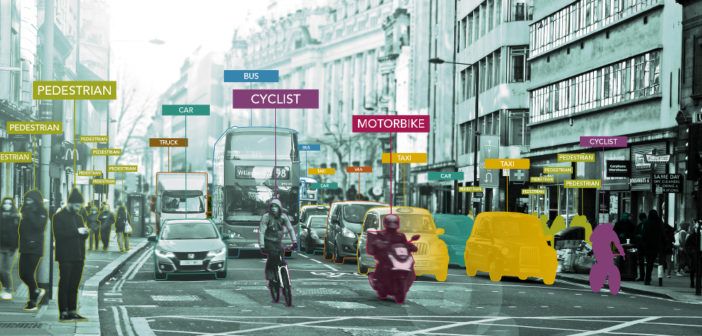The UK Government has invested £1.5m (US$1.9m) in three projects that will trial innovative technologies and new ways to use data to improve driving conditions, cut congestion, and reduce the time drivers spend in traffic jams.
The three successful bidders from Oxfordshire, York and Bournemouth win share of the £1.5m pot to trial innovative transport projects. The finance forms part of the Govtech Catalyst, a £20m (US$26m) fund for councils and SMEs to help solve local transport issues through the use of new technologies. This could help reduce the huge cost to the UK economy resulting from congestion by calming rush hour traffic and improving air quality and road safety for drivers. Whether commuting long distances or using public transport for the school run, the three winning projects will trial new ways of using data generated by transport in towns and cities to improve driving conditions for thousands of people while promoting the decarbonisation of the country’s transport network.
 The three projects, which will be managed by the Department for Transport (DfT) for 12 months, are:
The three projects, which will be managed by the Department for Transport (DfT) for 12 months, are:
- Bournemouth, Christchurch and Poole Council will deploy new artificial intelligence-based (AI) software developed by Vivacity Labs to improve driving conditions in the three south coast resorts. The transport data and analytics company’s sustainable software monitors traffic, flagging incidents in real-time, allowing traffic control operators to respond quickly and stop congestion forming;
- Oxfordshire County Council, will work closely with new technology SME company IM23, which is creating a tool that predicts and tackles congestion by helping traffic controllers understand how to keep vehicles moving while making efficient improvements to their road network;
- City of York Council is partnering with the UK branch of leading USA-based connected car services and transportation analytics company Inrix in a scheme that will use vehicle tracking to map vehicle ‘paths’ optimising and improving traffic signals in the city. The system will allow traffic to flow more freely, reducing journey times, red lights and stress for drivers.
“Congestion isn’t just bad for our environment, productivity and communities – it also has a huge impact on our national economy,” explained UK Transport Secretary, Grant Shapps. “That’s why, as well as our multi-billion-pound investment in rail and buses to improve connectivity, we are opening up city centre, transport and traffic management to new digital innovators. Transport technology is a growing global sector with the potential to help reduce congestion, emissions and improve connectivity.”
 Peter Mildon, chief operating officer of Vivacity Labs, said, “We will be heading a project that looks at how a blend of data sources and predictive Machine Learning can be combined to provide proactive traffic management tools. We are excited to be working with Siemens for this project, with both companies building on work carried out in Phase 1 of the GovTech Challenge.”
Peter Mildon, chief operating officer of Vivacity Labs, said, “We will be heading a project that looks at how a blend of data sources and predictive Machine Learning can be combined to provide proactive traffic management tools. We are excited to be working with Siemens for this project, with both companies building on work carried out in Phase 1 of the GovTech Challenge.”
James Gilchrist, York Council’s assistant director for transport, highways and environment, said, “We are very excited to have the opportunity to work with Inrix in this GovTech Challenge project to further explore the Performance Analysis Trajectory Help tool. We have seen real benefits with the early prototype, and hope that continuing with this ground-breaking project will lead to a better road network for residents, visitors and businesses.”





